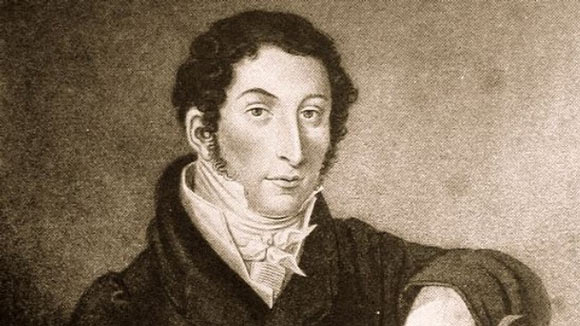Carl Maria von Weber, a trailblazing composer of the Romantic era, left a distinct mark on the world of classical music. Known as a pioneer of German Romantic opera, Weber’s works continue to inspire audiences and musicians alike. While he is celebrated for his opera Der Freischütz, his life and legacy hold many intriguing details that go beyond his famous compositions. Here are five fascinating curiosities about Carl Maria von Weber:
1. The “Father” of German Romantic Opera
While several composers contributed to the development of Romantic opera, Weber is often hailed as the “father” of German Romantic opera. Der Freischütz, his most famous opera, premiered in 1821 and introduced a supernatural, deeply emotional story that resonated with German audiences. The opera’s themes of folklore, nature, and the supernatural helped define the Romantic style and paved the way for future German composers, most notably Richard Wagner.
2. A Famous Family Connection: Mozart’s In-Law
Carl Maria von Weber was closely connected to another musical giant—Wolfgang Amadeus Mozart. Weber’s father was a first cousin to Constanze Weber, Mozart’s wife. This family connection is often cited as an influence on Weber’s musical development. Though Weber and Mozart had very different compositional styles, Mozart’s operatic innovations likely impacted Weber’s own approach to melody, orchestration, and drama.
3. A Gifted Conductor and Pianist
Aside from being an accomplished composer, Weber was also a celebrated conductor and virtuoso pianist. His skills on the piano were admired throughout Europe, and he even wrote several pieces specifically to showcase his talents, such as his Invitation to the Dance, which is considered one of the first examples of a concert waltz. His conducting style was also notable for its precision and expressive qualities, helping to establish the role of the modern conductor as both interpreter and leader of musical ensembles.
4. Battles with Illness and Adversity
Weber’s life was marked by struggles with illness and financial difficulties. He suffered from tuberculosis, which would ultimately lead to his premature death at the age of 39. Despite his health challenges, Weber remained incredibly productive, even while touring across Europe and fulfilling demanding performance schedules. His perseverance in the face of adversity has made his legacy all the more inspiring, highlighting his passion and dedication to music even during the most challenging periods of his life.
5. A Legacy Beyond Opera: Influence on Instrumental Music
While Weber is best known for his operas, his contributions to instrumental music are equally impressive. He composed two clarinet concertos, a concertino, and a quintet that remain staples in the clarinet repertoire. These works showcase his understanding of the instrument’s unique character and pushed the boundaries of clarinet technique. Weber’s instrumental compositions not only enriched the clarinet repertoire but also influenced composers like Mendelssohn, Liszt, and Berlioz, extending his impact beyond the opera house and into the concert hall.
Closing Thoughts
Carl Maria von Weber’s contributions to music were groundbreaking, and his legacy lives on through his operas, concert works, and instrumental pieces. Though his life was tragically short, Weber’s influence on Romantic music and his role in shaping German opera are undeniable. His life story and work continue to captivate classical music lovers and serve as an inspiring example of artistry and resilience.


Comments are closed